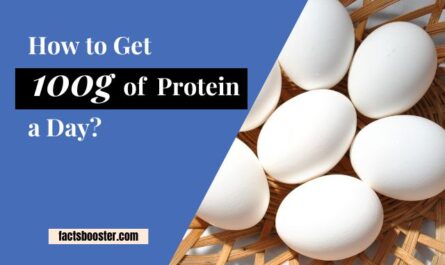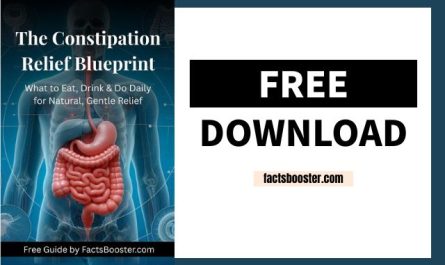What are the the best protein sources to include in a healthy diet? Whether you sway towards plant-based protein delights like legumes, tofu, and nuts, or lean more on the animal protein spectrum with lean meats and dairy protein, the beauty lies in the abundance of options that cater to every dietary need.
From fueling muscle repair and boosting metabolism to keeping you fuller longer for efficient weight management, protein is your dietary ally in achieving a balanced diet brimming with nutritional value.
Key Takeaways:
- Varied protein sources: Embrace a mix of plant-based and animal proteins to meet dietary needs.
- Health benefits: Protein aids in muscle repair, metabolism boost, and weight management.
- Nutritional balance: A high protein diet contributes to a balanced and nutritionally rich diet.
Understanding Protein and Your Body

Think of protein as the superhero of your diet. It’s not just about building bulk; protein plays a crucial role in muscle repair after those killer workouts, ensuring you’re ready to hit it hard again without undue delay. But the benefits don’t stop there.
Your metabolism also gets a nice boost from a high protein diet, making it easier for you to manage your weight and keep those pesky hunger pangs at bay. That feeling of satiety? You’ve got protein to thank for that too.
Most importantly, incorporating a variety of protein sources, whether they’re plant-based protein like legumes and tofu or animal protein such as lean meat and dairy protein, ensures your body receives all the essential amino acids it needs to function optimally.
This diversity not only caters to different dietary needs but also adds a rich spectrum of nutritional value to your meals. For a truly balanced diet, never underestimate the power of protein.
Best Protein Sources in A Healthy Diet: Animal-Based Protein
Turning our focus to animal-based protein sources, it’s important to acknowledge the nutritional powerhouse they can be in a balanced diet.
Lean meats stand out for their rich content of high-quality protein that aids in muscle repair and metabolism boost, while being lower in unhealthy fats. Fish, especially fatty types like salmon, are loaded with omega-3 fatty acids, crucial for heart health and cognitive function, alongside being excellent protein providers. (1)
Not to be overlooked, dairy protein from milk, cheese, and yogurt contributes not only high-quality protein but also a valuable source of calcium and vitamin D.
These animal-based options cater to a range of dietary needs, offering variety and nutritional value to everyone aiming to power up their plate for weight management and overall well-being.
Read more:
Best Protein Sources in A Healthy Diet: Plant-Based Protein
Let’s dive into the world of plant-based protein, a treasure trove for those of us looking to meet our protein needs without animal products. First off, legumes stand out as nutritional powerhouses.
Packed with protein, they’re also great sources of fiber and essential minerals, supporting everything from muscle repair to boosting your metabolism.
Then there’s tofu and tempeh, both derived from soybeans and offering a versatile protein punch that can be adapted to countless recipes.
For those on a high protein diet for weight management or just seeking to increase their protein intake, these plant-based options provide a fantastic way to enhance nutritional value while satisfying dietary needs with a focus on health and wellness. (2)
Whether you’re a steadfast vegan, a vegetarian, or simply plant-curious, incorporating these protein-rich foods into your meals can lead to improved satiety and overall health.
Incorporating Protein into Meals
Thinking of amping up your protein intake but not sure how? It’s simpler than you might think, and you don’t have to overhaul your diet overnight. Start with breakfast; swap your usual toast for a hearty omelet packed with lean meats or tofu for an early protein punch.
Lunch could be a vibrant salad topped with nuts and seeds or a chickpea-based soup, rich in both flavor and protein.
When dinner rolls around, think beyond the meat and three veg. Explore the world of legumes—think lentils in a curry or beans in a chili, perfect for both your protein and fiber needs. And if you’re a snack lover, ditch the chips for dairy protein in the form of Greek yogurt or a small handful of almonds to keep you satiated.
By focusing on plant-based protein, animal protein, and everything in between, you can ensure a balanced and diverse diet that will fuel your body right.
The Importance of Quality Over Quantity
The mantra ‘quality over quantity’ holds true. Sure, meeting your daily protein intake is important, but not all protein sources are created equal. Opt for high-quality protein sources, be they from lean meats, fish, dairy protein, or plant-based picks like tofu, legumes, nuts, and seeds.
These not only support muscle repair and metabolism boost but also play a pivotal role in weight management and satiety. Incorporating a variety of these protein-rich foods, with their high nutritional value, ensures you’re not just filling up on protein but are also getting a balanced mix of essential nutrients.
So, next time you’re planning your meals, remember, choosing quality proteins is key to fueling your body right and meeting your dietary needs effectively.
Navigating Protein Needs for Different Lifestyles
Understanding that our dietary needs evolve with our lifestyle, age, and physical demands is pivotal when it comes to powering up with the right protein sources.
Whether you’re a marathon runner or someone who takes a leisurely stroll around the block, your protein intake requires tailoring to fit the bill. For the athletes among us, incorporating high protein diet options, like lean meat or plant-based protein such as tofu, can be crucial in achieving that muscle repair and metabolism boost we desperately need.
On the other hand, those of us aiming for weight management might find solace in the satiety that comes with adding a variety of protein-rich foods, including legumes, nuts and seeds, into our meals. And let’s not forget about our seniors or those with specific dietary needs; dairy protein and other easily digestible sources become key players in maintaining a balanced diet.
Understanding and embracing the versatility of protein benefits tailored to each lifestyle ensures not just nutritional value, but a stepping stone to holistic health and wellness.
Protein Myths and Misconceptions
There are as many myths floating around as there are protein sources. Let’s bust some of these misconceptions with a dash of science and a sprinkle of facts. Firstly, the myth that too much protein harms your kidneys – this is largely unfounded for healthy individuals.
Your body is an incredible machine designed to handle a variety of dietary needs, including a high protein diet. However, moderation is key, as with all things in a balanced diet.
Another common fallacy is that plant-based proteins are incomplete, lacking the essential amino acids your body needs. This is simply not true. Plant-based sources like tofu, legumes, nuts, and seeds are packed with not only protein but a complex array of nutrients beneficial for weight management, muscle repair, and overall health.
The trick is to consume a varied diet – mixing different plant proteins can ensure you get all the essential amino acids, equivalent to what animal proteins provide.
The final myth we’re dismantling today is that a high protein diet always leads to weight loss. Protein does help with satiety and can boost your metabolism, which aids in weight management.
But remember, a healthy diet is all about balance – incorporating protein-rich foods in moderation alongside carbohydrates, fats, and other nutrients is key for sustainable health and wellness.
Final Thoughts
So, you’ve made it to the end, and by now, you understand that powering up your plate with the right proteins is not just about piling on any source. Whether it’s animal protein like lean meats and dairy protein, or plant-based protein such as legumes, tofu, and nuts and seeds, what’s essential is the quality and variety.
Integrating a mix of these protein sources into your meals can provide a range of benefits from muscle repair, metabolism boost, to satiety and weight management. And let’s not forget, each protein source brings its own set of nutritional values, adding a layer of dietary richness that’s hard to match.
Remember, when it comes to your protein intake, it’s not just about meeting a numeric goal. Consider the array of protein rich foods available and how they fit into a balanced diet. Listen to your body, attend to your dietary needs, and let the diverse world of proteins guide you towards optimal health and wellness. You’ve got this!


